Can I Use a Heating Pad While Pregnant?
Pregnancy is a beautiful and transformative journey for a woman. It’s a time filled with excitement, anticipation, and major changes—both emotionally and physically. However, it also comes with its fair share of discomforts. As your body adjusts to accommodate the growing life inside you, aches and pains in muscles and joints become common.
If you’re already familiar with the soothing relief a heating pad can provide, you may wonder: Is it safe to use a heating pad during pregnancy? In this article, we’ll explore the benefits, safety precautions, and alternatives of using a heating pad while pregnant. Let’s dive in and help you stay comfortable throughout your pregnancy.
Common Pains During Pregnancy
As your baby grows, your body goes through dramatic changes, many of which can cause discomfort or pain. Here are some of the most common issues expectant mothers experience:
-
Round Ligament Pain – Sharp, stabbing pain in the lower belly due to stretching ligaments as the uterus grows.
-
Back Pain – Common in pregnancy from added weight, posture shifts, and relaxed joints.
-
Pelvic Pain – Aching or pressure in the pelvic area caused by the baby’s position or loosening joints.
-
Breast Tenderness – Soreness and swelling due to hormonal changes early in pregnancy.
-
Headaches – Often triggered by hormone changes, stress, or dehydration.
-
Leg Cramps – Painful spasms, especially at night, linked to circulation and mineral imbalances.
-
Constipation and Gas Pain – Hormones slow digestion, causing bloating and discomfort.
-
Braxton Hicks Contractions – Mild, irregular uterine tightenings that prepare the body for labor.
-
Severe Pain Warning – Call your doctor if you have intense or persistent pain, bleeding, or fever.
Some of these discomforts can be safely relieved using gentle methods and tools, such as heating pads, prenatal massage, warm baths, or pregnancy-safe stretches—always with your healthcare provider’s guidance.
Is Using a Heating Pad Safe While Pregnant?
In short—yes.
Using a heating pad during pregnancy is generally safe, as long as you follow a few important guidelines.
Many expectant mothers worry about applying heat while pregnant, especially due to concerns about raising their internal body temperature. This concern is valid—activities like using hot tubs or saunas for extended periods can elevate core body temperature, which may pose risks to the baby and increase the chance of miscarriage.
However, heating pads work differently. When used correctly, they provide localized warmth and do not raise your overall body temperature. This makes them a safe option for relieving common aches and pains during pregnancy.
Pros
-
Relieves Muscle Aches and Cramps – Helps soothe common pregnancy-related muscle discomfort, especially in the lower back and legs.
-
Reduces Pain Perception – Heat relaxes tense muscles and eases overall sensations of pain.
-
Alleviates Lower Back Pain – Especially helpful for back pain caused by increased weight and pressure on the spine.
-
Improves Blood Flow – Heat therapy boosts circulation to targeted areas, aiding tissue repair and reducing stiffness.
-
Eases Joint Stiffness and Muscle Spasms – Useful for relieving tension in joints and reducing muscle spasms.
-
Targets Specific Pregnancy Pains – Can help manage pelvic girdle pain, round ligament pain, leg and knee pain, shoulder pain, and even tension headaches.
Potential Risks and Precautions
While using a heating pad during pregnancy can be safe when used correctly, there are potential risks to be aware of.
-
Overheating: Elevated body temperature during pregnancy—especially in the first trimester—has been linked to neural tube defects and other developmental issues. To avoid this, always use the heating pad on a low or medium setting and limit sessions to under 20 minutes.
-
Electromagnetic Fields (EMF): Electric heating pads emit low levels of EMF. Current evidence suggests that this exposure is not considered harmful during pregnancy, but if you’re concerned, you can opt for microwaveable heat packs or non-electric alternatives.
What Kind of Heating Pad to Use
When choosing a heating pad during pregnancy, safety and effectiveness should come first. Heat therapy—including heating pads, gel packs, or wraps—has long been used to relieve back pain, muscle soreness, and joint stiffness. It works by improving circulation and promoting tissue healing in the affected area.
The good news? These benefits can be safely enjoyed during pregnancy—with the right tools.
✅ Recommended Heating Options:
-
Electric Heating Pads with Temperature Control: Look for a pad with adjustable heat settings and an automatic shut-off feature. This helps prevent overheating and ensures safer use. Homlyns offers high-quality heating pads featuring 10 adjustable heat levels and 4 timer settings, providing personalized comfort and added convenience.
-
Microwaveable Heat Packs: These are great for short-term, gentle heat, ideal for smaller areas like the lower back, hips, or neck. Always test the temperature before applying. Here's DIY guide for making a rice heating pad.
-
Warm Gel Packs or Heat Wraps: These flexible packs conform to your body’s shape, offering soothing relief without the need for electricity—perfect for localized pain.
-
Hot Water Bottles: A classic, safe choice when wrapped in a cloth. They cool gradually and are easy to monitor.
-
Heated Blankets (Low Setting): Safe for pregnant women when used properly, they offer full-body warmth and relaxation—especially beneficial during colder months. Look for models with adjustable temperature settings and automatic shut-off. Use only on low heat, preheat the bed if needed, and avoid falling asleep while it’s on.
❌ Heating Options to Avoid:
-
Chemical Heating Pads (Stick-On Type): These should be avoided during pregnancy, especially those that attach directly to the skin. Pregnancy hormones can make your skin more sensitive or reactive, increasing the risk of burns or irritation.
-
Hot Tubs and Saunas: Extended time in high heat environments may raise your core body temperature, especially during early pregnancy. This is linked to birth defects and miscarriage risk—best to avoid completely.
Where to Use a Heating Pad During Pregnancy
Backaches, sore necks, and belly discomfort are common as your baby bump grows, and heating pads can help ease some of these aches safely when used properly:
-
Neck and Shoulders: Tension and soreness in the neck and shoulders can be safely eased with localized heat therapy.
-
Lower Back: Using a heating pad on back during pregnancy is effective for relaxing muscles and easing stiffness.
-
Pelvic Area: To soothe pelvic pain caused by loosening joints or baby positioning, place the heating pad on the lower pelvic region.
-
Legs: Apply heat to cramped muscles on legs to relieve leg cramps, particularly on the calves or thighs.
-
Other Muscle or Joint Areas: For general muscle soreness or stiffness, use a heating pad on the affected area, such as hips or thighs.
⚠️ Avoid placing a heating pad directly on your belly, especially during the first trimester or for extended periods, as prolonged heat on the abdomen may raise concerns.
How to Use a Heating Pad Safely
With proper precautions, heating pads can be safely used to relieve pregnancy-related discomfort. Keep the following safety tips in mind:
-
Inspect your heating pad: Avoid using damaged, frayed, or outdated pads, which may pose a fire or burn risk.
-
Keep temperature on low setting: Always choose the lowest effective temperature to avoid overheating.
-
Limit usage time: Keep sessions short—generally under 20 minutes at a time—to prevent overheating.
-
Avoid heavy clothing: Thick layers can trap excess heat. Use the heating pad over light clothing or with a thin towel barrier.
-
Use a towel as a barrier: Placing a soft towel between the pad and your skin adds an extra layer of safety.
-
Don’t fall asleep with it on: Always stay awake and alert while using a heating pad to prevent overheating or burns.
-
Talk to your doctor: Always check with your healthcare provider before using a heating pad, especially on the belly.
When Not to Use a Heating Pad
Although using a heating pad during pregnancy is typically safe, there are situations where it should be avoided:
- If you experience bleeding or leaking amniotic fluid.
- If you notice a change in your baby's movement or behavior
- If you have open wounds, infections, or skin conditions.
- If you have conditions that affect your ability to sense heat properly, such as diabetes or certain neurological disorders.
- If using the heating pad causes discomfort, burning, or skin irritation.
- If your healthcare provider advises against it.
- If you are using multiple sources of heat simultaneously.
If you have concerns about using a heating pad or the pain you are experiencing, always consult your doctor for personalized advice.
Alternative Ways for Pregnancy Pain Relief
While using a heating pad can be beneficial, there are alternative options that are considered safer during pregnancy. These alternatives can help manage pain and discomfort without the potential risks associated with heating pads. Here are a few alternatives to consider:
-
Exercise: Engaging in regular exercise, such as swimming, walking or prenatal yoga, can help reduce body aches by strengthening muscles and encouraging proper posture.
-
Massage: Prenatal massage can cause joint pains during pregnancy. It helps reduce swelling and tension in inflamed nerves.
-
Acupuncture: Acupuncture has been shown to successfully reduce back and pelvic pain when practiced under the guidance of a trained professional.
-
Support devices: Using support devices such as braces or body pillows can help alleviate back pain and provide better support for the body.
-
Physiotherapy: Physical therapy can be beneficial for managing pelvic girdle pain and other pregnancy-related discomforts. A trained therapist can offer exercises and techniques to alleviate pain.
-
Over-the-counter pain relief medications: Consult with your healthcare provider about safe over-the-counter pain relief options that are suitable for use during pregnancy.
It is important to remember that every pregnancy is unique, and what works for one person may not work for another before attempting any new pain relief methods or therapies during pregnancy. It's advisable to seek advice from your healthcare provider.
Conclusion
Pregnancy is a time of great change, and it’s completely natural to seek relief from the discomforts that come with it. When used correctly, heating pads can be a safe and effective way to ease common aches such as lower back pain, leg cramps, and muscle tension. The key is to follow safety guidelines, use low heat, and always consult your doctor when in doubt.
Key Takeaways:
-
Heating pads are generally safe during pregnancy when used on low or medium heat for short durations.
-
Avoid placing a heating pad directly on your belly, especially during the first trimester.
-
Choose safe heat sources like electric pads with auto shut-off, microwaveable packs, or hot water bottles.
-
Consider alternative pain relief methods such as prenatal massage, gentle physical activity, or support devices for added comfort.
-
Always consult your healthcare provider before starting any heat therapy, especially if you have a high-risk pregnancy.
With proper care and guidance, you can manage pregnancy discomforts safely and focus on enjoying this special journey.
FAQs
Can I use a heating pad on belly while pregnant?
It’s generally recommended to avoid placing a heating pad directly on the belly during pregnancy, especially in the first trimester. Elevated heat on the abdomen may pose risks to the developing fetus. For safer relief, apply the pad to areas like the back, hips, or shoulders instead.
Can I use a heating pad on back while pregnant?
Yes, using a heating pad on the back during pregnancy is generally safe and can help relieve muscle tension and lower back pain. Always use a low or medium heat setting, limit sessions to 15–20 minutes, and avoid falling asleep while it's on.
Can I lay on a heating pad while pregnant?
No, it’s not advised to lie directly on a heating pad while pregnant. Doing so can increase the risk of overheating and reduce your ability to feel if the heat becomes too intense. Always place the pad under or beside the target area—not directly beneath your body—and remain awake during use.
Can I use a heating pad during the second trimester of pregnancy?
Yes, heating pads are considered safe during the second trimester when used correctly. Keep the pad on a low setting, avoid using it on your belly, and limit heat sessions to 15–20 minutes to prevent overheating.
Heating pad first trimester vs second trimester
In the first trimester, heating pads should be used cautiously—keep heat low, short, and avoid the abdomen to reduce risk from raised core temperature. By the second trimester, local heating on the back, hips, or legs is generally safer. Always limit duration, avoid high heat, and prevent overheating.
Can a heating pad cause miscarriage?
When used properly, a heating pad is unlikely to cause miscarriage. The risk comes from sustained high heat applied directly to the abdomen. To stay safe, always use the pad on a low setting, keep sessions brief, and consult your doctor if you’re unsure or have a high-risk pregnancy.
Can a heating pad cause birth defects?
There is no clinical evidence that using a heating pad causes birth defects when used properly. Avoid placing it on the abdomen and always use low heat for short durations to minimize any potential risks.
When should I avoid using a heating pad during pregnancy?
Avoid using a heating pad if you have open wounds, numbness in the area, a fever, or a condition that affects heat sensitivity. Do not use the pad on your belly or fall asleep with it. Always prioritize safety and consult your healthcare provider if uncertain.
Is it safe to have a hot bath or hot shower while pregnant?
Warm baths and showers are generally safe during pregnancy if the water temperature stays below 100°F (38°C). Avoid hot tubs, long soaks, or anything that raises your body temperature. If you feel overheated, dizzy, or unwell, stop immediately and contact your healthcare provider.




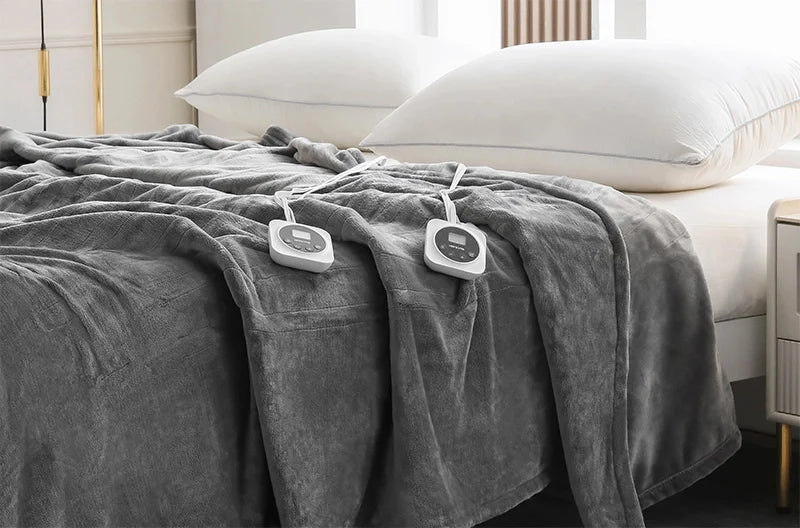
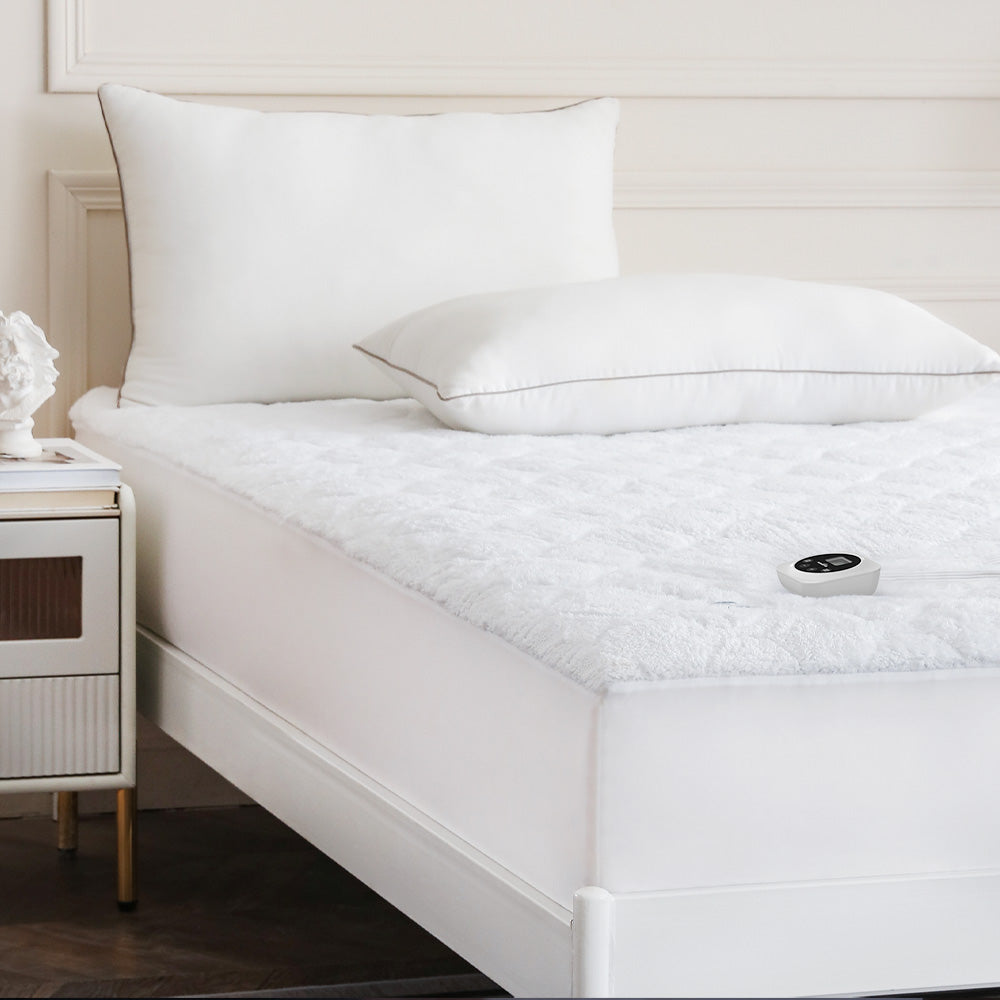
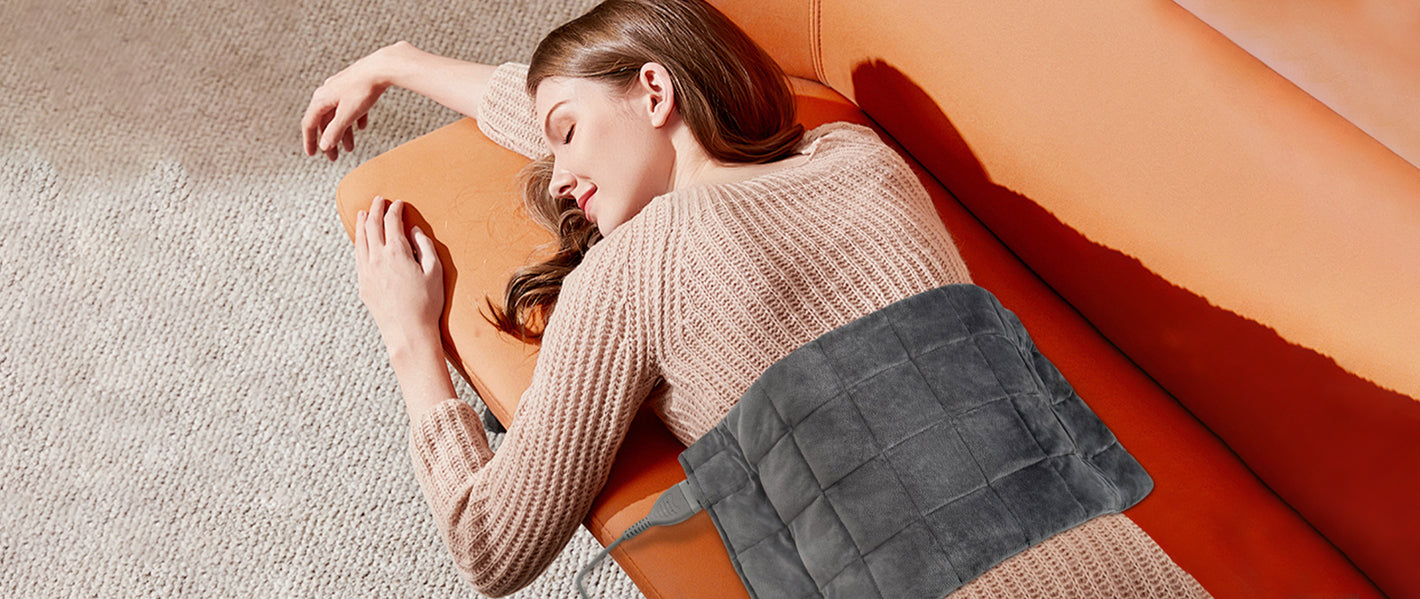
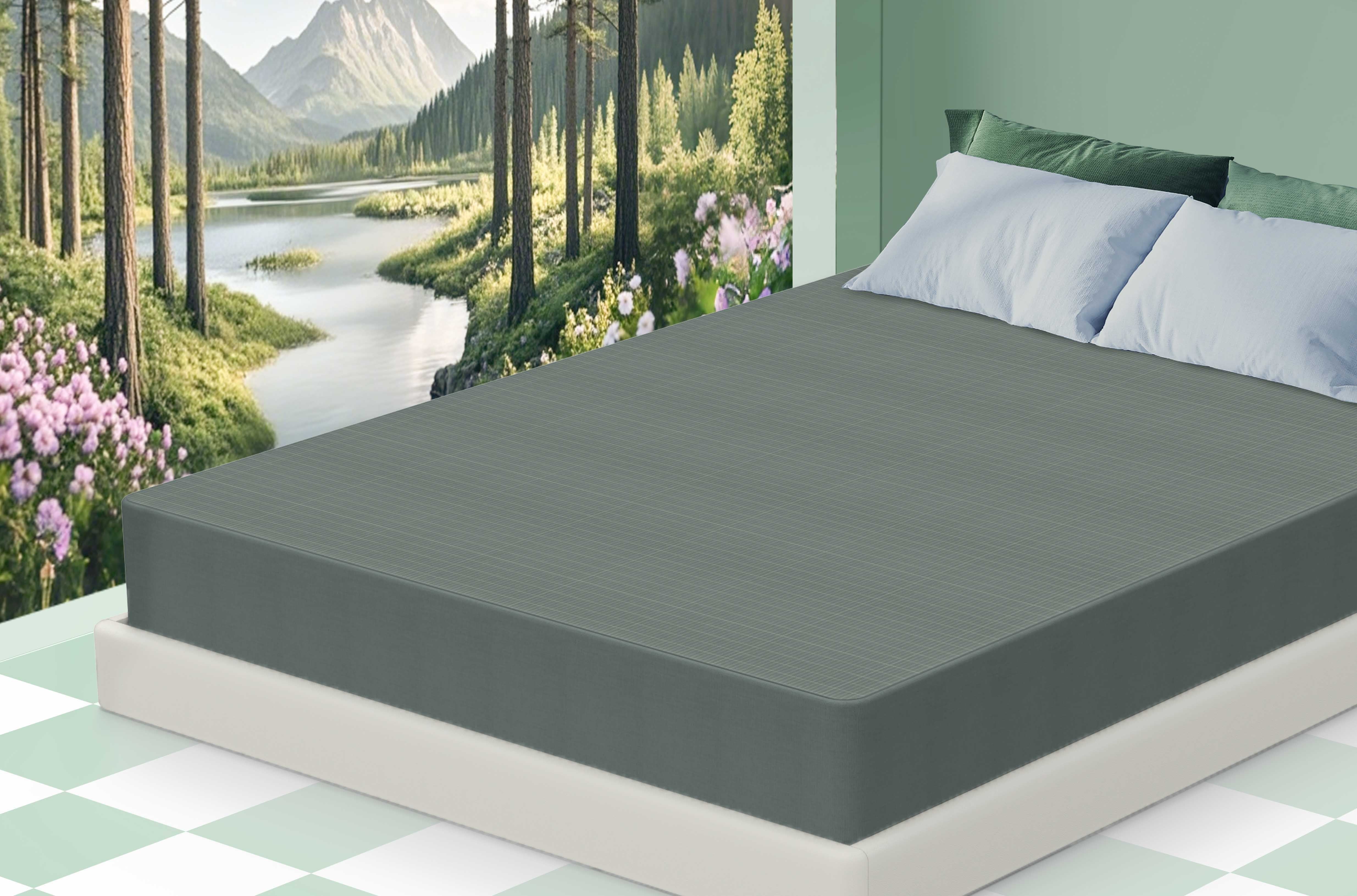
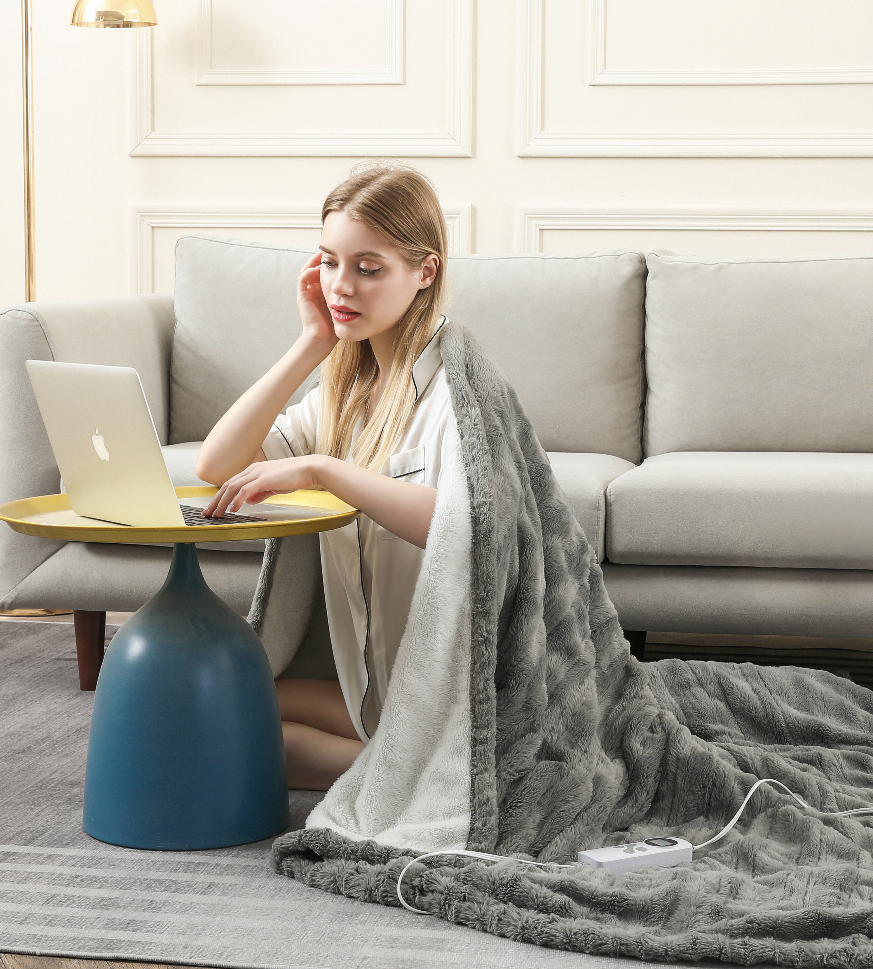
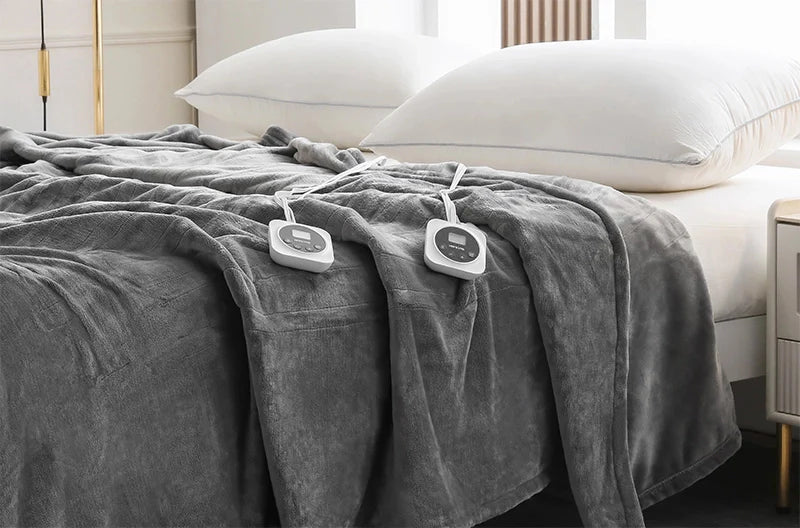
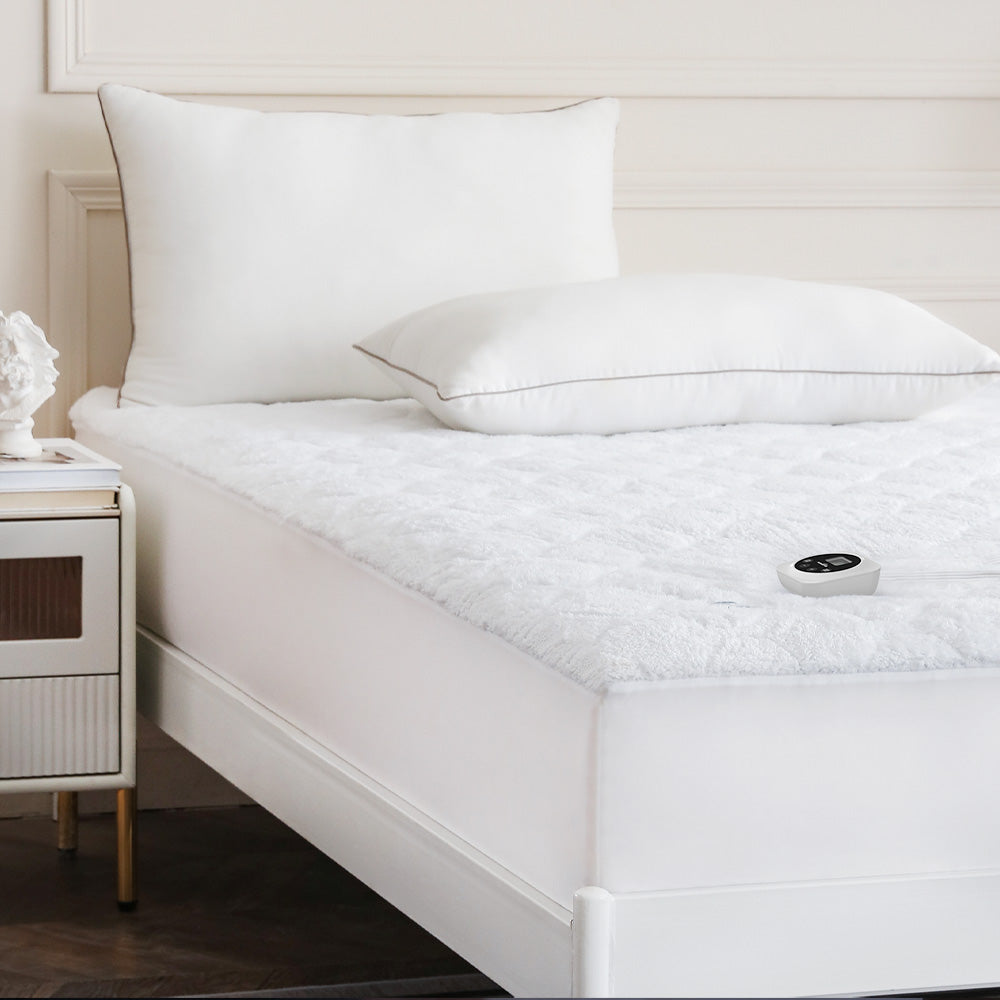
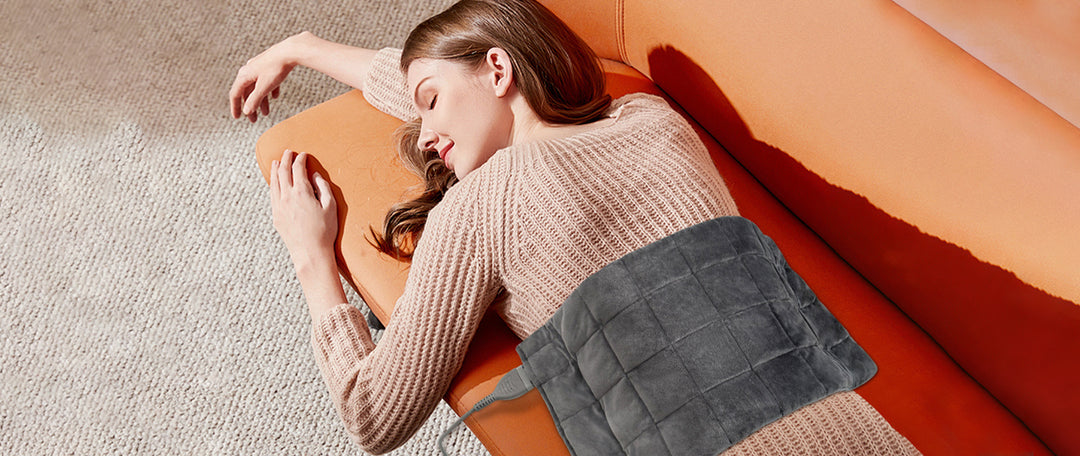
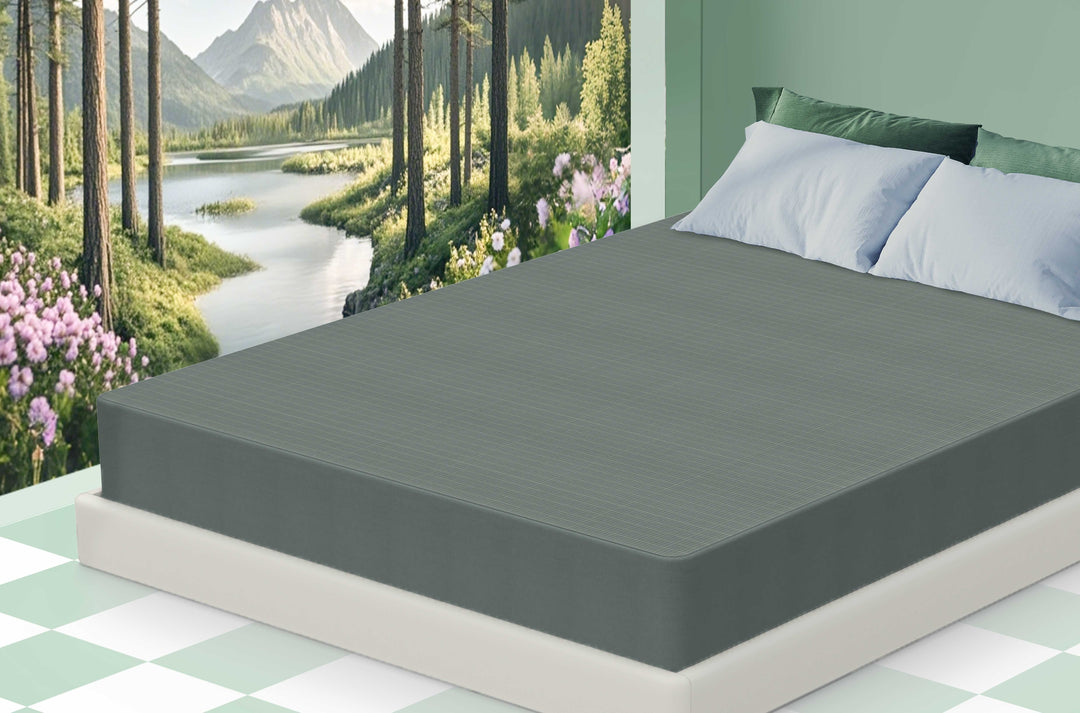



Leave a comment